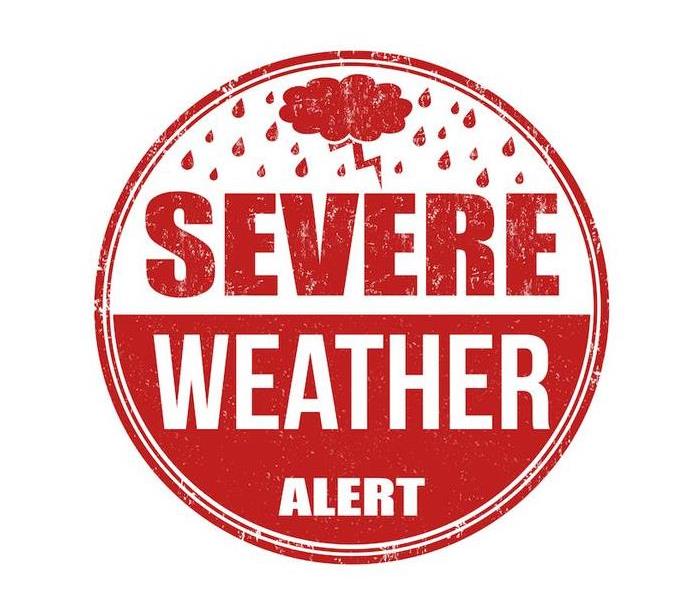Know Your Storm Alerts! | SERVPRO of East Cobb
8/3/2022 (Permalink)
When it comes to scary weather, things can get confusing quickly. There are more than 42 different kinds of weather alerts from seven different categories. That is a lot of information to sort through in the midst of trying to protect your loved ones from harm.
Knowing what advisories and alerts mean allows you to quickly seek shelter as necessary. You can also take the time before a storm gets rough to prepare your property and minimize damages.
It is good to have knowledge on all varieties of weather and the alerts that can come along with it, but it is essential to understand the weather alerts we most commonly see right here in Georgia.
How Alerts Are Issued
So, where do weather alerts come from at all? A forecast is just a prediction, so how is the type of storm and its strength, location and length monitored? There are actually several different pieces of information that go into answering those questions.
You have likely heard the name the National Weather Service, but did you know they are the entity responsible for creating weather forecasts and then issuing any warnings that come along with them? Across the nation, there are six different regional offices and more than 100 forecasting offices, which means our forecast is localized and highly accurate. For us in East Cobb, our weather forecasting office is located in Peachtree City.
Meteorologists employed with the NWS utilize several different types of data in order to create a forecast, including seismic activity meters, solar activity, various sensors and satellite radar. The type of information used is different depending on the kind of storm moving in, but the end result is always the same: to provide the most accurate forecast possible.
The Most Important Alerts to Understand
When looking into different kinds of weather alerts, you need to first understand the difference between a “watch” and a “warning.” These are two types of alerts used in almost every weather situation, including floods, winter storms and thunderstorms.
When a watch is issued, you should begin taking steps to protect your home from what could become dangerous weather later. Watches are issued over large areas, while a warning is issued when a severe storm has been spotted in a smaller area such as a county or city.
When a warning is issued, you should seek cover immediately as danger is imminent.
It is also crucial to understand the weather that affects us here in Georgia, and we know that can mean a lot of different things. Our winters bring freeze warnings, ice storms and the occasional winter storm advisory, while our springs and summers bring heavy rains, strong thunderstorms and even tornadoes. This means understanding flood, tornado and thunderstorms alerts is must for all of us.
Protecting Your Home During a Storm
Familiarizing yourself with multiple kinds of weather alerts is the first step in protecting your loved ones and mitigating damage to your home, but there are a few other things you can do as well.
Keep your gutters clear and secure your outdoor furniture before a storm moves in to avoid flooding damage and wind damage later.
Create an emergency supply kit and keep it in a safe space in your home for your family to ride out a storm in. Prepare an exit plan and practice it with your entire household regularly for those times that staying put just isn’t safe.
Once a storm has moved through, take a look around your property and survey any damage that has been done. Take pictures and give SERVPRO of East Cobb a call. We are available 24⁄7 to get your recovery process started as fast as possible.
Learning about all the different kinds of weather that Georgia can throw at us means that we can protect our families and our homes. Stay aware of the alerts that can be issued all around so that you are ready when the next storm rolls through.
Experienced storm damage to your home or property? Contact us today for a quick response!






 24/7 Emergency Service
24/7 Emergency Service